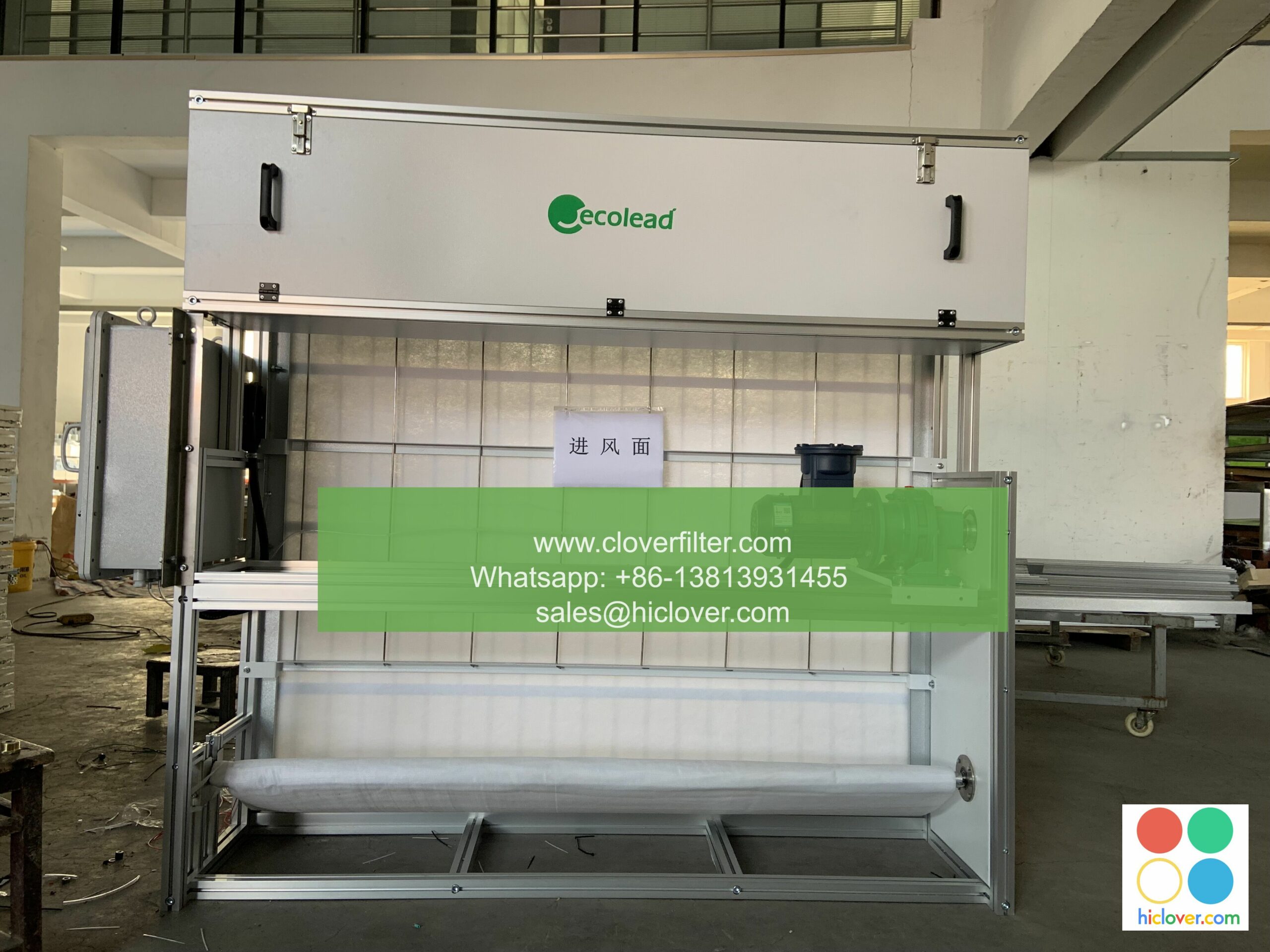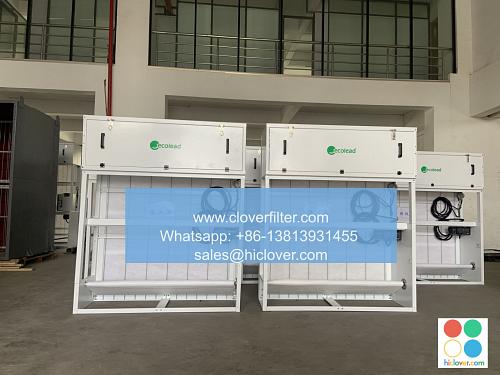Regina Chemical Industry: The Role of Automatic Roll Air Filters in Ensuring Regulatory Compliance

The chemical industry in Regina, Saskatchewan, Canada, is a significant contributor to the local economy, with numerous plants and facilities producing a wide range of chemicals and products. However, this industry is also subject to strict regulations and guidelines to ensure environmental sustainability and public safety. One crucial aspect of regulatory compliance in the chemical industry is the control of airborne emissions and pollutants. In this context, automatic roll air filters play a vital role in ensuring that chemical plants and facilities meet the required standards.
Automatic roll air filters are designed to capture airborne particles and pollutants, including dust, fumes, and vapors, which are commonly generated in chemical processing operations. These filters are typically installed in ventilation systems and ductwork, where they can efficiently remove contaminants from the air streams. By using automatic roll air filters, chemical plants can minimize the release of harmful emissions into the atmosphere, reducing the risk of environmental pollution and health hazards.
Regulatory compliance is a critical consideration for chemical plants in Regina, as failure to meet environmental standards can result in significant fines, penalties, and reputational damage. The Saskatchewan government has established strict regulations and guidelines for the chemical industry, including limits on airborne emissions and requirements for air pollution control systems. Automatic roll air filters can help chemical plants meet these requirements by providing an effective and efficient means of controlling airborne pollutants.
In addition to regulatory compliance, automatic roll air filters can also provide economic benefits for chemical plants. By reducing the amount of airborne pollutants released into the atmosphere, plants can minimize the risk of environmental damage and associated costs. Furthermore, automatic roll air filters can help to improve indoor air quality, reducing the risk of health problems and absenteeism among workers. This can result in significant cost savings and improved productivity.
Another advantage of automatic roll air filters is their ability to operate continuously and automatically, without requiring manual intervention or maintenance. This ensures that chemical plants can maintain consistent and reliable air quality control, even during periods of high production or maintenance activities. Additionally, automatic roll air filters can be easily integrated with existing ventilation systems and control technologies, making them a convenient and practical solution for chemical plants.
In recent years, there have been significant advancements in the design and technology of automatic roll air filters, making them more efficient, effective, and cost-competitive. Modern filters are designed with advanced materials and coatings, which can capture a wider range of airborne pollutants and particles. Additionally, many filters are now equipped with advanced monitoring and control systems, which can provide real-time data and alerts on filter performance and maintenance requirements.
In conclusion, automatic roll air filters play a critical role in ensuring regulatory compliance and environmental sustainability in the chemical industry in Regina. By providing an effective and efficient means of controlling airborne pollutants, these filters can help chemical plants meet strict environmental standards and minimize the risk of environmental pollution and health hazards. With their ability to operate continuously and automatically, automatic roll air filters can also provide economic benefits and improve indoor air quality. As the chemical industry continues to evolve and grow, the importance of automatic roll air filters will only continue to increase.
Frequently Asked Questions (FAQs)
Q: What are automatic roll air filters, and how do they work?
Automatic roll air filters are designed to capture airborne particles and pollutants from air streams. They typically consist of a roll of filter media, which is automatically advanced and replaced as it becomes saturated with pollutants.
Q: What are the benefits of using automatic roll air filters in chemical plants?
The benefits of using automatic roll air filters in chemical plants include regulatory compliance, reduced environmental pollution, improved indoor air quality, and cost savings.
Q: How can automatic roll air filters help chemical plants meet regulatory requirements?
Automatic roll air filters can help chemical plants meet regulatory requirements by providing an effective and efficient means of controlling airborne pollutants. They can capture a wide range of particles and pollutants, including dust, fumes, and vapors.
Q: Are automatic roll air filters easy to maintain and operate?
Yes, automatic roll air filters are designed to operate continuously and automatically, without requiring manual intervention or maintenance. They can be easily integrated with existing ventilation systems and control technologies.
Q: What are the economic benefits of using automatic roll air filters in chemical plants?
The economic benefits of using automatic roll air filters in chemical plants include cost savings, improved productivity, and reduced environmental damage and associated costs.

